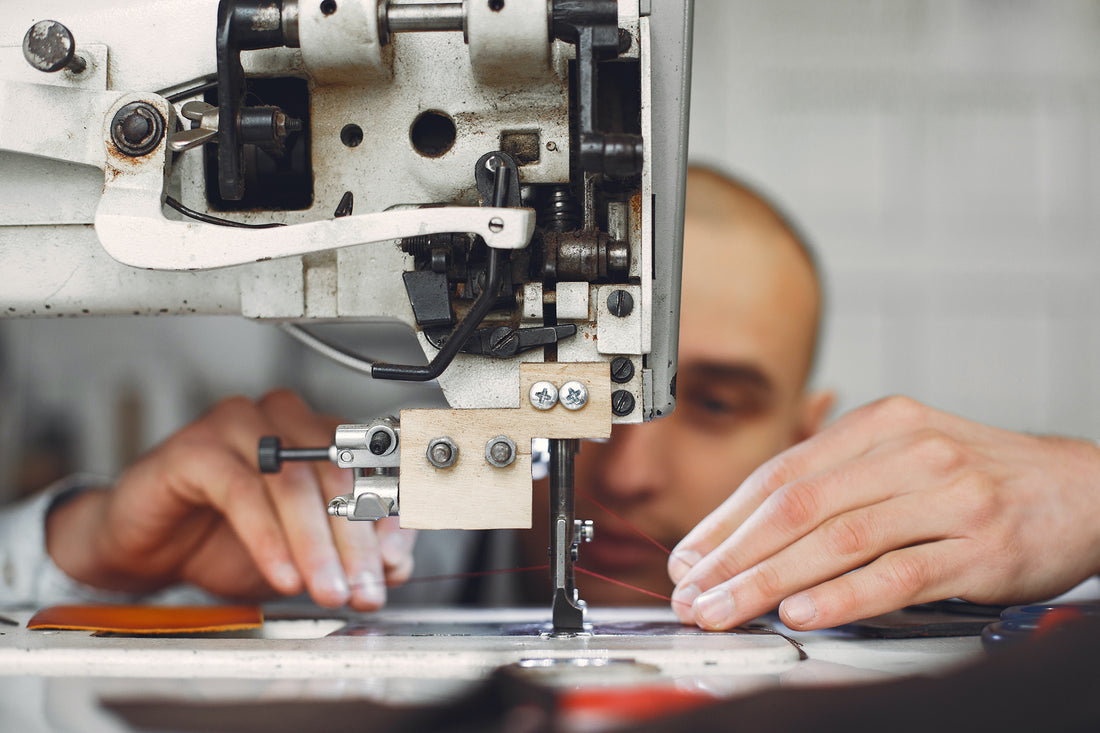
Does the place of manufacture of a garment matter to us?
Share
Does the place of manufacture of a garment matter to us? This is a reflection that I find interesting to bring.
I have told you how Udhara arises. Is it true? For those of you who don't know, very briefly, it comes from a personal change. From a fast and unfounded life, to an absolute halt where I reflected on who I was and who I wanted to be. There were multiple habits that I changed, just rearranging my values. What I eat, what I do, where I live, who I interact with, what I buy, what I wear... and where all this is made...
So… I started to look, to look at the fabrics of the clothes, and where they were made. I did not care about the money, I wanted little and good. How I wanted to be a fit girl, I needed an outfit to put on it. Sports brands was the first thing I noticed. Adidas, Nike, Asics... I was astonished... T-shirts for €30, €40, €45 made of my beloved material, polyester. Then? Why not buy at Decathlon that are worth €9. According to the post The impact of buying a fashionable dress , at least one of the 4 impacts described would be saved. The economic one, because that of health and the environment, of course not.
What else was on that label…well, where was it made? I, that Nueva Ana wanted everything to be made in Spain. You have to be ignorant. What world did I live in? Morocco, India, China…among other countries…my internal conflict often. But if I didn't want to buy from brands where they "exploit" people. Work with children… be in bad conditions… no no, my money can't promote that.
In this way, I began to transfer this concern to my circle. I remember a breakfast with my work group. Here there was everything, posh, perroflautas, environmentalists, right-wingers, trade unionists... a very diverse group, as you can see. Well, they didn't answer my question. Not the trade unionist. They didn't have a solution for me. What a move… the new Ana, buying clothes made in exploited countries.
But one day, talking to my father, on the terrace of the house, one on the table, between the watermelon and the coffee, he made me see a completely different point of view.
“Ana thinks that these countries are at a different point of development than ours. Here, in the 1950s, companies like Seat and Ford were brought from Germany because it was cheaper to manufacture here than there, and they gave work to many families, which allowed the development of the country. At that time, children also worked here. At that time, and 20 years later, I worked without PPE. If those companies hadn't come. We would have starved. What would have become of those families that needed their children to work in order to live? Otherwise maybe, just maybe, they would have died. We cannot pretend to pay at the price of Spain, in those countries, because labor is not worth the same. What is important, that the working conditions are adequate, as far as possible. And avoid exploitation.”
What dilemma… manufacture in Spain or give work to developing countries? What would happen if we took all the factories out of there? It is that the matter is not so simple.
So... with this dilemma, Udhara was born, which will be manufactured in Portugal, because there are no workshops in Spain that manufacture lingerie. We ensure that it complies with European regulations, and that in the transport process it consumes the minimum, being only 500km from our logistics center. Manufacturing costs are more expensive, yes. You can not have everything.
What do you think European manufacturing or in developing countries?
